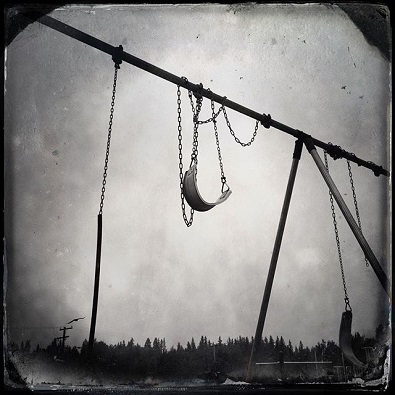A photo of Mission Hill, Saskatchewan – where Beauval Indian Residential School ran from 1895 to 1995. Photo by Daniella Zalcman as part of her Signs of Your Identity photojournalism project.
A recent parole board of Canada decision will allow a Beauval Indian Residential School abuser to leave all correctional centre custody by July.
Paul Mary Leroux, 76, was a dormitory supervisor at the school more than 50 years ago he committed indecent assault and gross indecency against a number of students. He was found guilty of those offences in 2013.
He had been held in British Columbia since a Saskatchewan Court of Appeals ruling more than doubled his sentence to seven years, 10 months. Originally, he was sentenced to three years.
Before that, Leroux had served time for similar sex crimes committed when he was a dorm supervisor at a residential school in Inuvik in the 1970s.
The report from Leroux’s late April hearing shows issues with taking responsibility for the crimes, said Parole Board of Canada regional spokesman Patrick Storey.
“Mr. Leroux does take responsibility for behaving inappropriately sexually with a large number of victims, but does he take full responsibility? That’s still an issue for Mr. Leroux,” he said.
The Board granted Leroux day parole in late April, and will approve full parole for Leroux when he is eligible in July. Correctional Services Canada was in charge of releasing Leroux on day parole when a spot in a halfway house was available, Storey said.
Leroux will be subject to a number of conditions. He can’t be around male children unless approved people accompany him, and the same goes for areas where youths under 18 might congregate like schools, parks or recreational centres. He also can’t access any form of pornography.
“Even though he’s in the community on day parole and then later full parole he is being supervised; he’s still under sentence. So if the parole officer who’s supervising him finds his risk going up can act quickly to suspend his release which means he goes back to prison,” Storey said.
Storey said he understands public interest in Leroux’s release plan, but emphasizes that the parole board strictly follows the rule of law.
“Given the nature of his crimes – you know, he’s a high-profile person, he has many victims – and public concern is completely understandable. The Board, though, has to follow the law, the Board can’t ignore the law,” he said.
The focus during the hearing is on Leroux’s risk to reoffend. The information this would be based on includes psychological assessments, analysis of Leroux’s criminal history, and possible programming he’s taken while in prison.
Meanwhile, a woman whose international photo exhibit captured the heartbreak of several men Leroux abused, is speaking out.
In a social media post, American Photojournalist Daniella Zalcman wrote that Leroux “unequivocally ruined the lives of dozens of children.”
When Zalcman visited Canada for her project, one of Leroux’s victims, who cannot be named due to publication bans, told Zalcman that as a result of that abuse, he struggles to love his children.
“I got caught in the wrong place and the wrong time in history. I don’t think we can ever heal from this. We’re just going to have to die with all the pain,” the victim told her.
Those men’s stories will be included in an upcoming publishing of Zalcman’s work.
